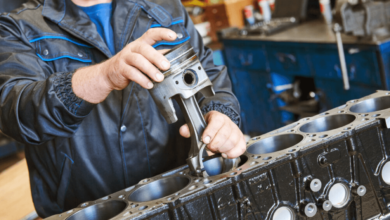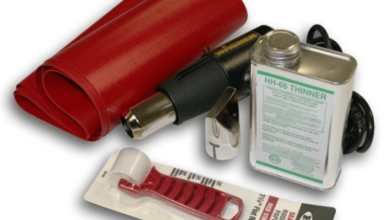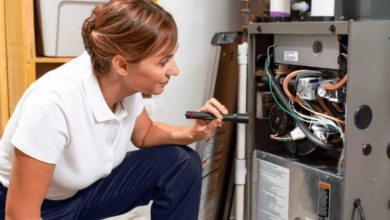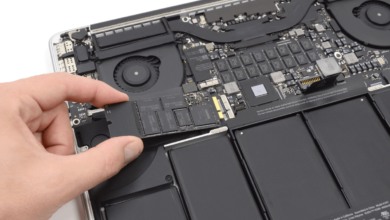Corporal PC Repair: Your Ultimate Guide to Troubleshooting and Maintenance
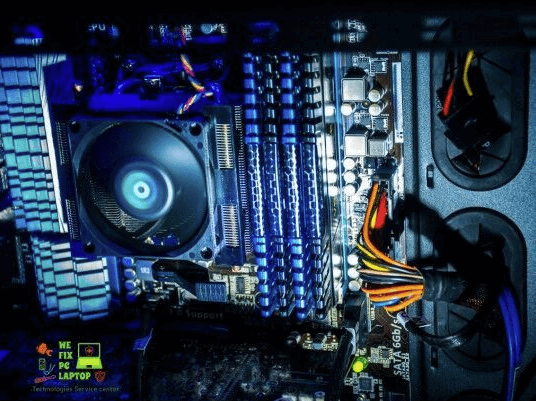
In today’s fast-paced digital age, a malfunctioning computer can be a major setback. Whether you use your PC for work, gaming, or staying connected with friends and family, unexpected issues can disrupt your daily routine. However, fret not! This comprehensive guide on “Corporal PC Repair” tackle common computer problems effectively. Let’s dive in and get your computer back in shape.
Introduction
Your PC is an indispensable part of your daily life, but it can sometimes throw unexpected challenges your way. In this article, we’ll guide you through the process of troubleshooting and maintaining your computer. From basic software issues to complex hardware problems, we’ve got you covered.
Basic Troubleshooting
Understanding Common Issues
Before diving into technical solutions, it’s crucial to identify the specific problem. Is your computer not turning on? Is it running slower than usual? Are you experiencing frequent crashes or freezes? Understanding the issue will help you find the right solution.
Restarting Your PC
Believe it or not, a simple restart can solve many problems. It clears the system’s memory and restarts essential processes. If you’re facing minor issues like a frozen application, try restarting your PC before moving on to more complex solutions.
Checking Power Sources
Loose cables or power surges can cause sudden shutdowns or failure to turn on. Verify that both ends of the power cord are securely plugged in.
Peripheral Inspection
Sometimes, a malfunctioning peripheral device like a keyboard or mouse can create the illusion of a PC problem. Disconnect all peripherals and check if the issue persists. If not, reconnect them one by one to identify the culprit.
Software Troubleshooting
Identifying Software Problems
Software issues can range from viruses and malware to corrupted system files. Pay attention to error messages and unusual behavior to pinpoint software-related problems.
Running Antivirus Scans
Invest in a reputable antivirus program and perform regular scans to detect and remove malware. Keep the antivirus software updated to ensure maximum protection.
Uninstalling Unwanted Programs
Over time, your PC may accumulate unnecessary software that can slow it down. Uninstall programs you no longer use to free up valuable disk space and improve performance.
Hardware Troubleshooting
Diagnosing Hardware Issues
Hardware problems can range from overheating to faulty components. Listen for unusual sounds, check for error messages related to hardware, and inspect the internal components.
Cleaning Your corporal pc repair
Causing it to overheat and malfunction. Regularly clean your computer’s interior with compressed air to prevent overheating.
Reconnecting Loose Cables
Loose cables can lead to a lack of connectivity and hardware malfunctions.
Upgrading Hardware Components
If your PC is struggling to keep up with modern software demands, consider upgrading hardware components like RAM, hard drive, or graphics card to enhance performance.
Internet Connection Problems
Diagnosing Network Issues
Slow or unreliable internet can be frustrating. Check if the issue is specific to your PC or affecting multiple devices in your network.
Resetting Your Router
If your internet connection is problematic, try resetting your router. This can often resolve connectivity issues caused by router glitches.
Checking Ethernet and Wi-Fi Settings
Review your Ethernet and Wi-Fi settings to ensure they are correctly configured. Incorrect settings can lead to connectivity problems.
Contacting Your ISP
If all else fails, reach out to your Internet Service Provider (ISP) for assistance. They can troubleshoot and resolve network-related issues on their end.
Data Backup and Recovery
Importance of Regular Backups
Don’t wait for a data disaster to strike. Hardware failures or malware attacks.
Using Cloud Services
Offer convenient and secure options for storing your data off-site.
Data Recovery Tools
In the unfortunate event of data loss, there are various data recovery tools available. However, success rates vary, so it’s best to consult professionals for critical data recovery.
Seeking Professional Help
For complex hardware or software issues beyond your expertise, don’t hesitate to seek professional assistance. Certified technicians can diagnose and repair your PC effectively.
Preventive Maintenance
Keeping Your PC Dust-Free
Dust can accumulate inside your computer and impede airflow, leading to overheating. Regularly clean your PC’s interior to prevent dust buildup.
Regular Software Updates
Enable automatic software updates to ensure you have the latest security patches and bug fixes. This helps protect your PC from vulnerabilities.
Safe Browsing Habits
Avoid downloading files from untrustworthy sources and clicking on suspicious links. Practicing safe online habits can prevent malware infections.
Scheduled Maintenance Tasks
This proactive approach can prolong your PC’s lifespan. Read more…
Conclusion
Your corporal pc repair is a valuable tool; with the right knowledge and maintenance, you can keep it running smoothly. Guide, you’ll be better equipped to handle any PC issues that come your way.
Frequently Asked Questions (FAQs)
- Q: How often should I clean the interior of my PC?
- A: It’s advisable to clean your PC’s interior every 3-6 months, depending on your environment and dust levels.
- Q: What’s the best antivirus software for my PC?
- A: Popular antivirus options include Norton, McAfee, and Bitdefender. Choose one that suits your needs and budget.
- Q: Can I upgrade my laptop’s hardware?
- A: Upgrading laptop hardware can be limited compared to desktops. Consult your laptop’s manufacturer for compatible upgrades.
- Q: Is it necessary to schedule regular backups?
- A: Yes, regular backups are essential to safeguard your data against unexpected loss or corruption.
- Q: How can I prevent my PC from overheating?
- A: Ensure proper ventilation, clean out dust regularly, and avoid blocking airflow around your computer.
Remember, a well-maintained PC can serve you faithfully for years to come. If you ever find yourself in a tech bind, refer back to this guide for assistance.


